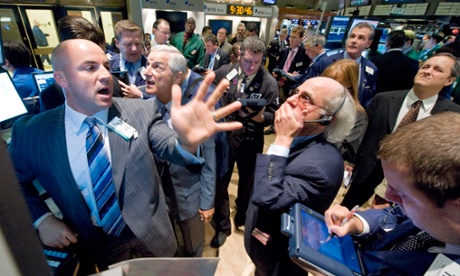
When Zappos announced late last year that it would eliminate titles and traditional managers from its company, some were skeptical about whether the online shoe retailer could pull it off.
But the company tells Business Insider that 80% of its 1,500 employees are now working under Holacracy, a relatively new organizational philosophy meant to offer workers more flexibility by replacing traditional job titles with a fluctuating number of roles that each employee is assigned.
Rather than being accountable to a single boss in a traditional hierarchy, each employee reports to the other people in their “circles.” Each circle has an organizational goal to achieve, and each role that people fill within the circle is a task necessary for accomplishing that goal.
Of course Holacracy has not made Zappos a company entirely without hierarchy. The creation of new roles in a circle is left to a singular person known as the “lead link,” and many circles contain subcircles that they oversee.
For instance, Zappos CEO Tony Hsieh is the lead link on the company’s broadest circle, the 10-member internal board, which is tasked with fulfilling the company’s overall purpose.
John Bunch, the Zappos employee tasked with running the company’s transition to Holacracy, tells Business Insider that Hsieh’s power is different under Holacracy.
However, Bunch declines to say whether Hsieh’s sway has increased or decreased at the company he joined as CEO in 2000 and sold to Amazon 9 years later for $1.2 billion.
Hsieh holds “many, many, many roles” across the company, Bunch says, including being the “department expert” in a circle devoted to teaching other businesses about Zappos’ famously quirky corporate culture.
Related Posts
- 64Let’s start with the premise that Twitch, the video-game watching network, is the next ESPN – you know, the jewel in Disney’s crown that, by itself, is worth $50.8 billion. Like ESPN, Twitch is about live competition, and, like ESPN, Twitch does exceptionally well in the highly desirable young male demographic.1 Obviously…
- 60With the simple flick of its finger, Angry Birds was the launchpad for the multi-billion pound mobile games industry we see today, but while many see it as a an overnight success story for Finnish startup Rovio, the truth is somewhat different. Speaking to IBTimes UK at Rovio's colourful headquarters…
- 57Motivation is a fire that must constantly be refueled if it is to continue to burn.
- 56There’s a startup in New York everyone talks about, and the things they say aren't very nice. The startup sold for ~$80 million and the founders got rich. But, as the rumors go, no other employee made more than $50,000. That's a common exit scenario. The founders put in a…
- 55Graduation speeches are the last opportunity for a high school or college to educate its students. It's unsurprising, then, that these institutions often pull in some of the world's most powerful people to leave an equally powerful impression on their students. Here are the best of those speeches and some…

/cdn0.vox-cdn.com/uploads/chorus_asset/file/2397824/USA-Franklin_Delano_Roosevelt_Memorial.0.jpg)